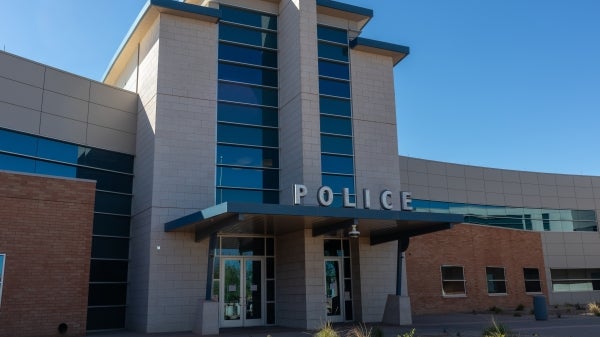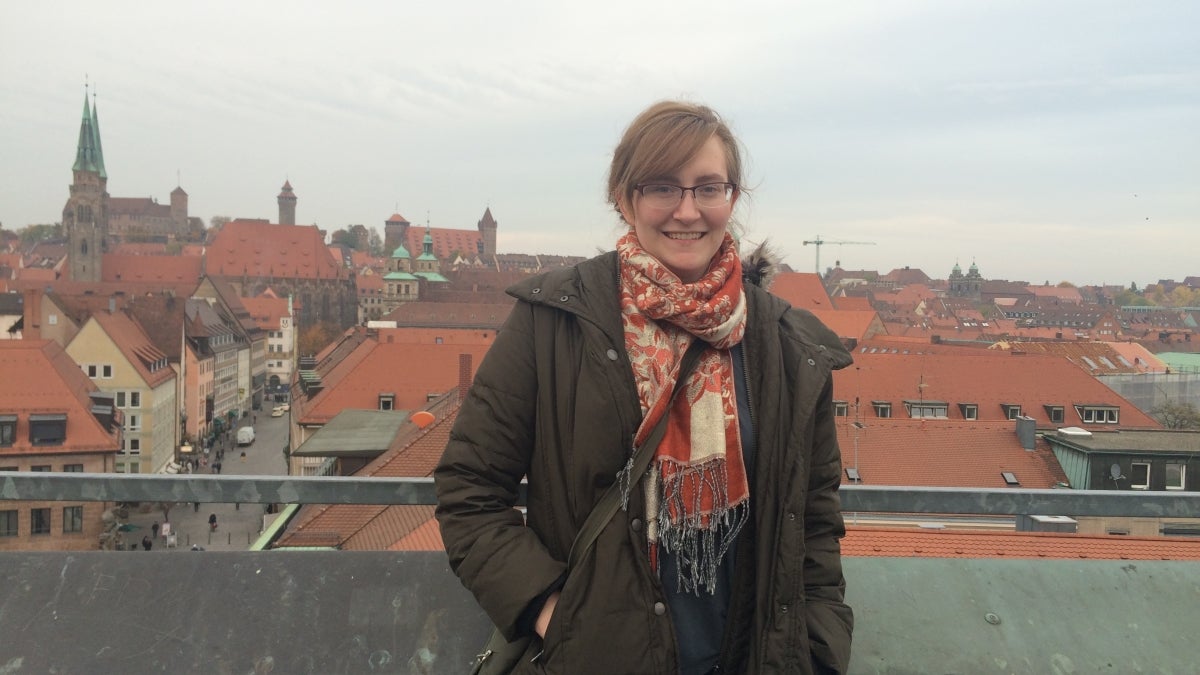People who win Fulbright awards to teach English abroad learn a tremendous amount about other cultures.
But it goes both ways. Young people in other countries get to learn about America from Fulbright grantees, such as Amalie Sielaff, who is teaching English in Germany.
The question her students asked her: Will she vote for Kanye West for president?
“Being able to share American culture with students who otherwise would not get a firsthand perspective has been very rewarding,” said Sielaff, who graduated from Arizona State University's College of Liberal Arts and Sciences with a degree in German.
“It can also sometimes be challenging to help German students understand that I am not the authority on everything American, that the United States is a lot bigger than they realize, and that people from Arizona might have a totally different life perspective than someone from New York or Los Angeles,” she said.
One cultural bridge she’s found: food.
“Try cooking for the students. It’s a great way to show them something 'typically American,’ “ she said.
Sielaff answered some questions about her Fulbright experience:
Question: Why did you decide to apply for a Fulbright?
Answer: For me, the English teaching assistant position in Germany was perfect because I hope to eventually become a teacher. I was also looking for a way to be able to live in Germany for awhile!
Q: What is a typical day like for you?
A: I work in Nuremberg, in Northern Bavaria, at two schools in classrooms ranging from fifth through 12th grade.
Usually I work in the mornings and early afternoon, either teaching grammar lessons, giving presentations on American culture or helping out in the classroom. If I'm not preparing for these lessons, I meet with the other Fulbrighters in the area, give English tutoring, enjoyomg the parks in the city, or wandering the downtown area and market center.
I also participate in a community choir and volunteer at the German-American Institute with their English outreach program.
Q: What do you do on the weekends?
A: My roommate is a Nuremberg-native and we visit some of the cultural events in the city, like museums, festivals, concerts, etc. I also make occasional day trips, either to other cities in Germany or to other countries in Europe.
Q: What’s been the best part of your experience?
A: The best of part of my experience has probably been getting to know the other Fulbrighters in Bavaria. We've been able to share experiences, brainstorm lesson ideas and travel together, as well as be a support group for each other. I also really enjoy the opportunity to work in a German school, because teaching is a possible career choice for me and German culture is my area of study.
Q: What will you bring back from your experience that will help you in your career — or your life?
A: Since I want to some day teach German, being here is an extremely valuable experience for me. Just having this much practice with the language will be a benefit. I have also developed a greater understanding of different cultural and global perspectives, which is helpful in nearly any field.
Q: What would you tell someone who is contemplating applying for a Fulbright?
A: It’s definitely worth it. Save up some money though, so you can do some traveling.
More Local, national and global affairs

What’s next for unions? ASU center investigates evolving strategies in new report
Port workers hanging up their hats on the East Coast. Starbucks employees putting down their aprons before Christmas. Ski patrollers signing off in Park City as fresh powder piles up. The past year…

Protecting national security in a rapidly changing world
As the 21st century dawned, the challenges facing our nation and the world — such as cyberthreats, resource scarcity and space security — became too big to solve with traditional research methods.…

Accreditation helps build exacting standards, public trust in law enforcement agencies, ASU professor says
Accreditation is a tool police agencies can use to help assure the public that sworn personnel adhere to high professional standards, says an Arizona State University professor who recently completed…
